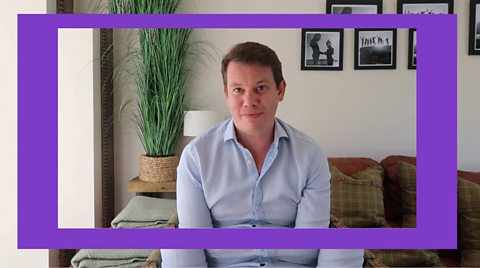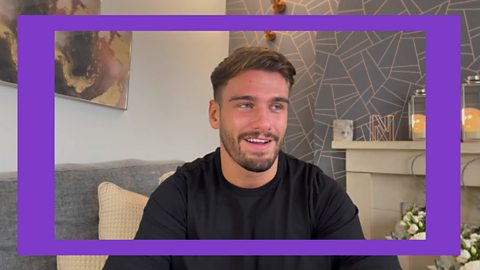Parenting a child with ADHD can be a challenge, but it can also be a joy.
Cheryl and Richard are learning to deal with the ups and downs of ADHD since Alexander was diagnosed at the beginning of lockdown. For Tilly and her daughter, Molly, ADHD has been a shared journey that has brought them closer.
Learn more about their stories, and their tips and advice for other parents, hereÔÇŽ
Tilly: Children are no different, what they really need is someone to talk to, someone to understand them and if you have a child with ADHD, they need that even more so
Alexander: Ready?!
Tilly: Hi, IÔÇÖm Tilly.
Richard, Cheryl and Alexander: and we areÔÇŽ the Jenkinsons!
Tilly: and this isÔÇŽ
Molly: (singing) Molly yeah!
Cheryl: Alexander has masses of energy. He loves running and climbing and jumping. Sit down please!
Tilly: IÔÇÖm very proud of Molly. SheÔÇÖs very kind and caring and loving. SheÔÇÖs super creativeÔÇŽ
Molly: - Super creative!
Richard: You really like to make people smile; you make them laugh.
Alexander: Yeah!
Tilly: There is never a dull moment (laughs).
Cheryl: We found out that Alexander had ADHD when he was six, just at the start of the pandemic.
Tilly: How old were you when you were diagnosed with ADHD?
Molly: I was seven years old.
Cheryl: He was finding it hard to concentrate on anything for more than a minute. His brain never switches off and he was making quite dangerous and impulsive decisions at times.
Alexander: IÔÇÖve run off.
Richard: And you were running off as well, werenÔÇÖt you?
Tilly: A child, in particular with ADHD, will feel a lot of the time misunderstood, not heard.
Richard: WeÔÇÖre finding it pretty hard work, pretty exhausting to be honest and at times it felt almost a bit hopeless.
Molly: IÔÇÖm the same as everybody else, itÔÇÖs justÔÇŽ
Tilly: Your mind works a bit differently, thatÔÇÖs all.
Molly: Yeah. There are certain things that I struggle with but that never makes me stop trying.
Cheryl: The ADHD diagnosis has been life-changing.
Richard: We feel that finally weÔÇÖve been able to get him some help.
Tilly: ADHD is part of her build-up, part of her individuality and without ADHD you wouldnÔÇÖt be you, would you?
Richard: We feel a little bit more equipped to help and support him into the future.
Molly: I think ADHD just makes me be me.
Cheryl: Things that work well for us include really good routines, lots of praise, staying calm and lots of tickles.
Tilly: Show the world yourselfÔÇŽ
Molly: Show the world that you are you and nobody in the world can change that.
Tilly: Yeah, a hundred percent.
Molly: Except you.
Tips and advice for parents
1. Allow them to be themselves
ADHD is part of your childÔÇÖs unique makeup and celebrating their individuality builds self-confidence and happiness. Those with ADHD have brains that operate differently, and this might make certain things harder but, as parents have discovered, it can also lead to fun and originality.
2. Listen, talk and understand
Communication is vital. Listen to your child's opinion of their needs and take the time to explain what ADHD is in way that they understand. Being understanding of their perspective on their difficulties helps you to be on the same page as a family.
3. Be patient
For children with ADHD, focussing on one specific task at a time can be challenging. It is important not to take this personally. If you feel like your child isnÔÇÖt listening to instructions, or is quickly distracted, keep in mind that this may be a reflection of their ADHD, rather than their relationship with you. Taking this into account can help you come to the table with a calmer, more accepting mindset.
4. Put routines in place
Routines are helpful for all children, but even more so for those with ADHD. A set structure for family life means that they have less to remember. If they know what they have to do every day, this builds habits that can result in fewer conflicts which will ultimately assist your child in feeling calm and in control.
5. Find the help they need
Your child may need more specialised help to aid them in managing their ADHD. There are evidence-based treatments for ADHD which include both behavioural interventions and, in some children, medication. These can really make a difference in helping your child both at school and at home.
In the first instance, discuss any concerns with your childÔÇÖs teacher at school, or their Special Educational Needs Co-Ordinator (SENCO). You can also talk to your GP who can explain the local process for ADHD assessment.
Online resources
There are also a number of national ADHD charities that provide information for parents, including tools to help explain ADHD to children. These includeÔÇŽ

More from ┬ÚÂ╣ď╝┼─ Bitesize Parents' ToolkitÔÇŽ
Parents' Toolkit
Fun activities, real-life stories, wellbeing support and loads of helpful advice - we're here for you and your child.

Mental health first aid kit for parents: Who to ask and what to do
Worried that your child needs help with their mental health? Here's how you can access professional help and support your child while you wait.

What is ADHD and does my child have it?
Paediatrician Dr Richard Lee-Kelland explains how parents can spot ADHD in their child and how to get diagnosis.

Jacques O'Neill: Growing up with ADHD
The Love Island star talks about being diagnosed with ADHD, difficulties in school and how his mum and rugby helped him thrive.


